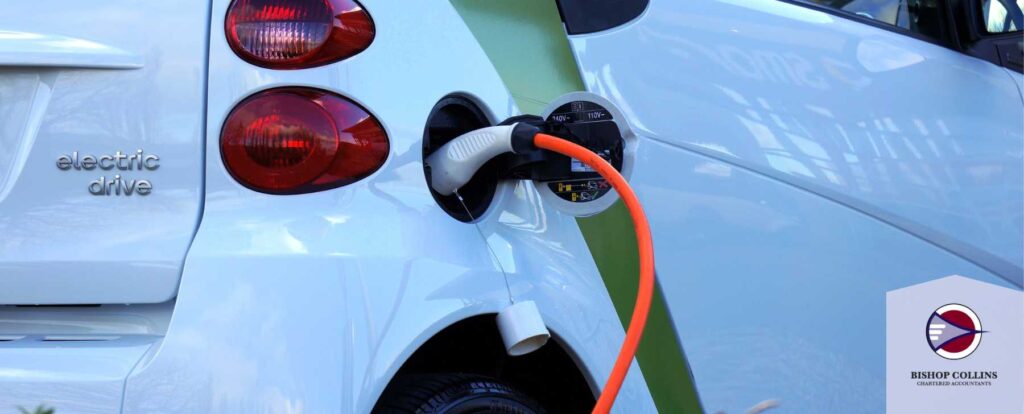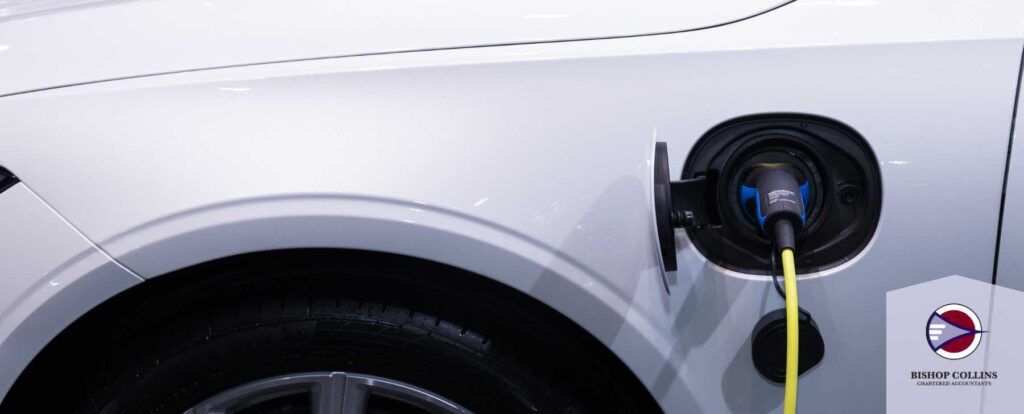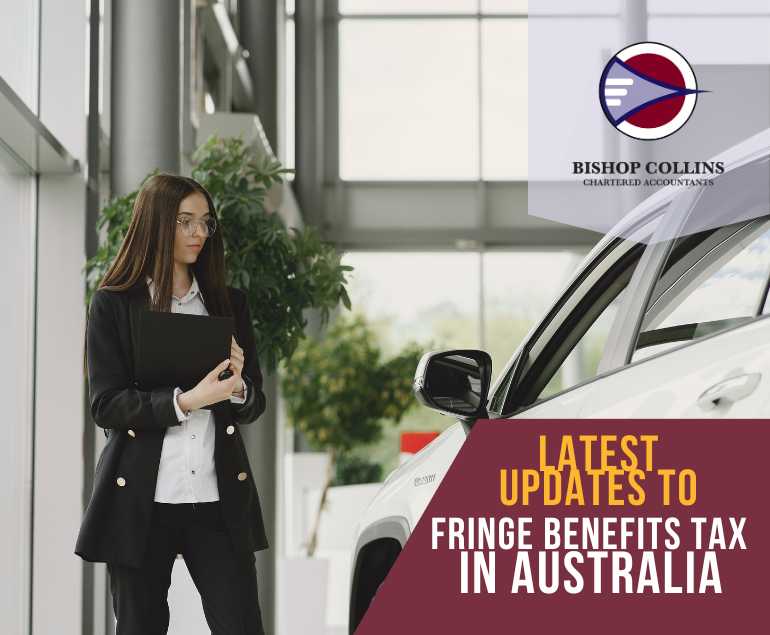
Let’s get something straight before I go anywhere with Fringe Benefits Tax. In the past I was not a fan of FBT, except for Not for Profit entities and Charities and for high net worth individuals in small circumstances.
In essence, I used to regard FBT as not worth the trouble for the employer entity; that is, until recent changes made to FBT on electric vehicles (EVs) from the 1st of July 2022. Eligible EVs and Hybrid cars are now exempt from FBT. I am now a fan!
Now for a little context to my update via a short history lesson.
FBT is applied on most non-cash benefits that an employer provides “in respect of employment”. The tax is imposed on the employer, not the employee, and is payable irrespective of whether the benefit is provided directly to the employee or to an associate of the employee.
FBT rules since the government introduced the legislation in 1986 and changes along the way are complex and designed to limit any tax savings of providing benefits to employees. As a general rule, it is not tax-effective for an employee to salary package benefits if their marginal tax rate is below the 2023 FBT rate of 47% (which is equal to the top marginal tax rate, including the Medicare levy).
Providing a benefit to employees was designed to attract employees and retain their services as the remuneration and the benefits enhanced their working experience. With most of these benefits being treated as a taxable benefit, the workload to provide them has lost its attractiveness.
These employees should generally limit the types of benefits they receive under salary packaging agreements to benefits that are exempt from FBT (e.g., work-related laptops) or to benefits that are concessionally taxed under the FBT rules (e.g., car fringe benefits), or to benefits that are “otherwise deductible” benefits such as additional superannuation contributions.
Note however, that this benefit of additional superannuation benefits paid for an employee are also not as beneficial to taxpayers whose taxable income plus superannuation contributions are in excess of $250,000 per year. So, as you can see the complexity makes it very time consuming and generally not worth the administrative burden on the employer. But things have changed!
 Electric Vehicles, Hybrid Cars, Salary Packaging and Recent Changes
Electric Vehicles, Hybrid Cars, Salary Packaging and Recent Changes
As an employer, you previously needed to pay FBT on motor vehicles (regardless of whether they were EV, Petrol or Diesel) provided to your employees. From the 1st of July 2022, you no longer need to pay FBT on benefits provided for eligible electric cars and associated expenses.
So what are the eligibility requirements? This comes straight from the Australian Taxation Office website:
“You will now be exempt from paying FBT on benefits provided for electric cars that meet all the following criteria:
- the car is a zero- or low-emissions vehicle
- the first time the car is both held and used is on or after 1 July 2022
- the car is used by a current employee or their associates (such as family members)
- luxury car tax has never been payable on the importation or sale of the car.
- Registration, insurance, repairs, maintenance and fuel expenses associated with the eligible electric car are also exempt from FBT.”
Please note this exemption does not apply to motorcycles and scooters, whether they’re electric or not and home charging stations are also not exempt.
A WORD OF WARNING: as with all tax situations, there are several points to consider before rushing off to get that dream Porsche Cayenne EV for $300,000 packaged through the company. As luxury tax is applied to this vehicle, which means it is not eligible. The GST inclusive value of the car you are using must be below the Luxury car tax threshold.
For fuel efficient vehicles as outlined in the FBT exemption this threshold is higher than for other vehicles. In the financial year ending 30th of June 2023 this threshold is $84,916.
Example
Now that we can exclude any car in excess of $84,916, let’s look at an example to illustrate the attractiveness of this environmentally influenced tax benefit:
Sandra has a salary of $180,000 plus $20,000 Super (SGC plus additional super). She has always wanted a Luxury Plug-In Hybrid Car. The GST inclusive cost including options and charges was $84,000 with no Luxury Car tax applied.
Sandra has 100% private use. She purchases the vehicle through her company with cash and no debt as part of her Salary Package and the company takes ownership of the car on the 1st of May 2023. Registration, insurance, repairs and maintenance and fuel expenses are forecast to total $11000 for the year.
Side Note: As the car was purchased and ready for use before 30 June 2023 the Backing Business investment accelerated depreciation allowance provides for an immediate deduction to the Car limit for Financial Year 22-23 of $64,741.
This is a significant up front tax saving of $16,185 for the employer if it is a company (Base Rate entity). The company can claim the GST paid on the car Circa $7K also assisting in cashflow in July 23. So, benefit to the company, tick.
Now to Sandra. Sandra will salary package her car and running expenses for FY 22-23 so let’s compare Sandra buying personally or through her company.
Current Tax, No Package
Income Tax on Taxable income of $180,000 Inc Medicare = $55,267
Net salary of $124,733.
Less Running Costs $11,000
After tax and costs cash position = $113,733
Salary packaging all costs
Taxable income: $180,000
Less running costs net of GST: $10,000
Add back input tax credit from GST on vehicle capped at car limit of $64,741: $5,885 for the first year and 0 the following years.
Taxable Salary: $175,885 first year and $170,000 following years
Tax on Salary: $53,662 first year and $51,367 following years
After tax and costs cash position: $122,223 first year and $118,633 following years
Net Tax benefit to Sandra in the first year: $8,490
Net Tax benefit to Sandra each year thereafter: $4,900
That means the net tax benefit over five years is a whopping $28,090! Finally to complete my FBT update…
 Other Recent Changes For the 2023 FBT Year Ended in March
Other Recent Changes For the 2023 FBT Year Ended in March
The ATO has just released draft guidelines for calculating the electricity costs incurred by an employee when charging an electric vehicle at their home.
These guidelines are set out in Practical Compliance Guideline PCG 2023/D1 (‘PCG 2023/D1’).
Employers who choose to use the guidelines contained in PCG 2023/D1, can calculate the electricity costs incurred by an employee when charging an electric vehicle at their home, by applying the following formula:
4.2 cents x total KMs travelled by the vehicle during the FBT year.
Employers who pay/reimburse an employee’s electricity costs associated with charging an employer- provided electric car at their home will not be subject to FBT on the reimbursement.
 FBT got you groaning out loud? Bishop Collins can Help
FBT got you groaning out loud? Bishop Collins can Help
FBT can be a key element to the operation of your business, and as such should be something that you are fully knowledgeable on. That’s where Bishop Collins come in! We’re passionate about helping our clients understand the information they need to successfully and profitably run their business, and we are experts when it comes to business tax and accounting. Reach out to us today to see how we can help with all your business tax needs.
Whatever stage your business is up to at Bishop Collins we are passionate about helping our clients achieve their version of success. Feel free to reach out if you would like professional assistance for your business.



